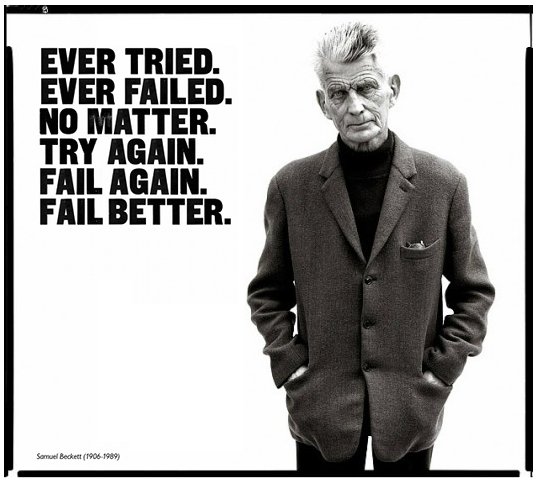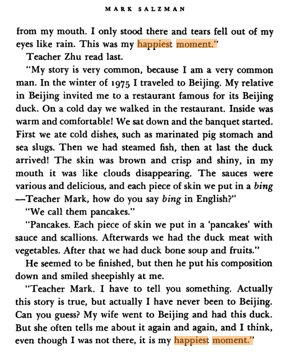
This quote is from one of Beckett’s lesser known (or, to me, totally unknown) prose poems, Worstward Ho, and as an isolated quote the perfect counterpoint to the important maxim from Beckett’s Endgame: “The end is in the beginning and yet you go on.” While I vaguely recall seeing a poster with this quote in the room of a college friend, I never knew about or read Worstward Ho.
I mention this because I came across a four page long story today in “The Collected Stories of Lydia Davis” called “Southward Bound, reads Worstward Ho.” Not having been aware of the Beckett story before, I had to read up on it because otherwise, as was clear from the first paragraph, Davis’ story and especially her odd staccato writing style closely following the quote above, would have been entirely lost on me.
This article describes my reaction perfectly:
Baffling yet wonderful, Davis’ story “Southward Bound, Reads Worstward Ho” may have one of the more bizarre short-story premises of all time. An unnamed woman sits on an airport-shuttle van and reads Samuel Beckett’s enigmatic story Worstward Ho. However, due to the bright morning sunlight, she cannot read the book when the van is heading north, because she is sitting on the right side. The story consists of detailed descriptions of the woman’s van ride and exactly what she is reading, accompanied by copious footnotes concerning the trajectory of the van, the quality of the light [etc].
Reading a difficult story about a person having difficulty reading a difficult story is exasperating, even outraging. Of course, this kind of frustration is exactly what Beckett’s story is about. Worstward Ho is an existential lament over the unending frustrations of life, a Sisyphean howl. The woman in the van, with her constant attempts and failures to read and understand Beckett’s text, embodies Beckett’s basic dilemma, but in a hilariously mundane fashion.
VN:F [1.9.22_1171]
Rating: 0.0/5 (0 votes cast)
VN:F [1.9.22_1171]



